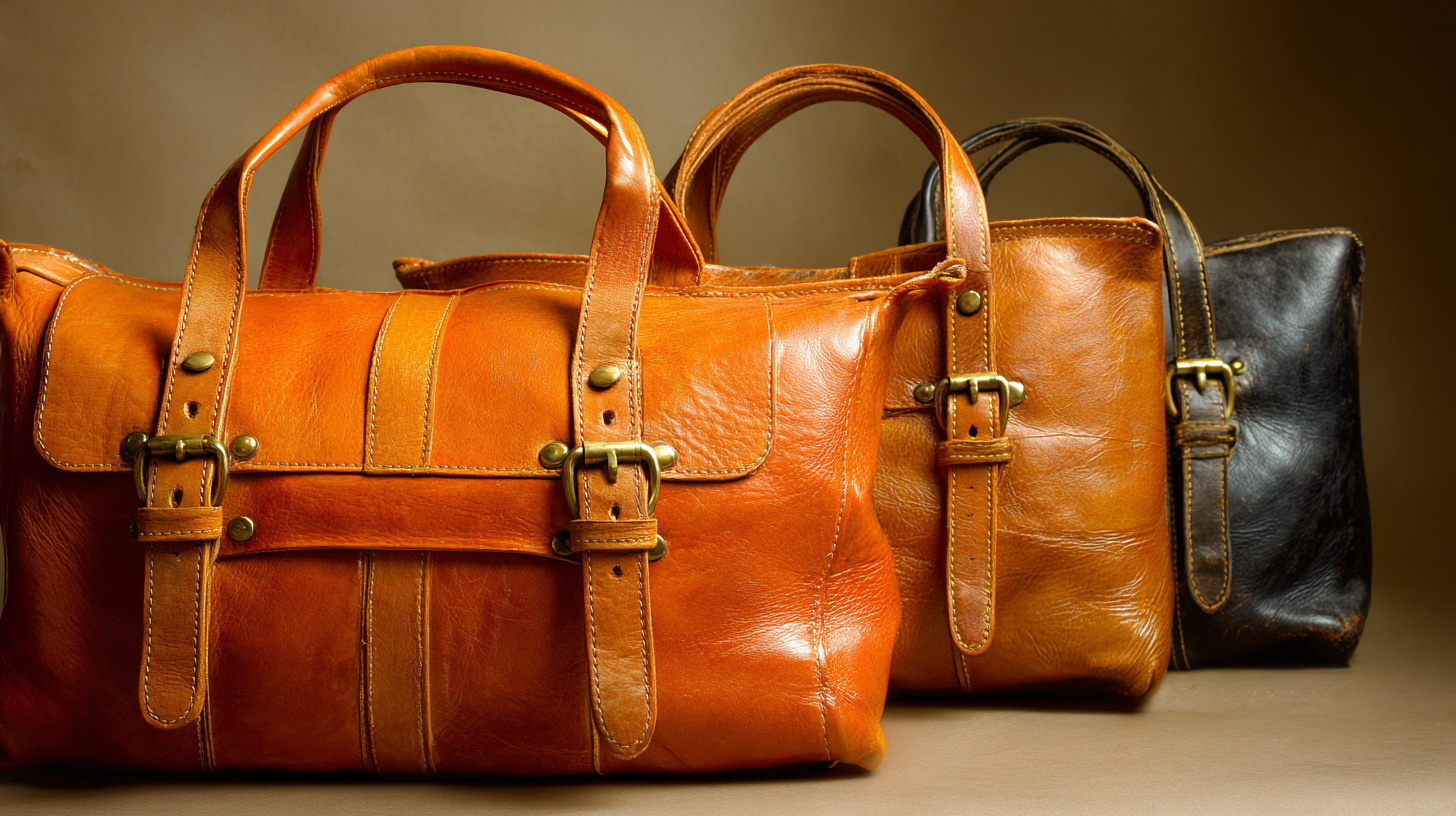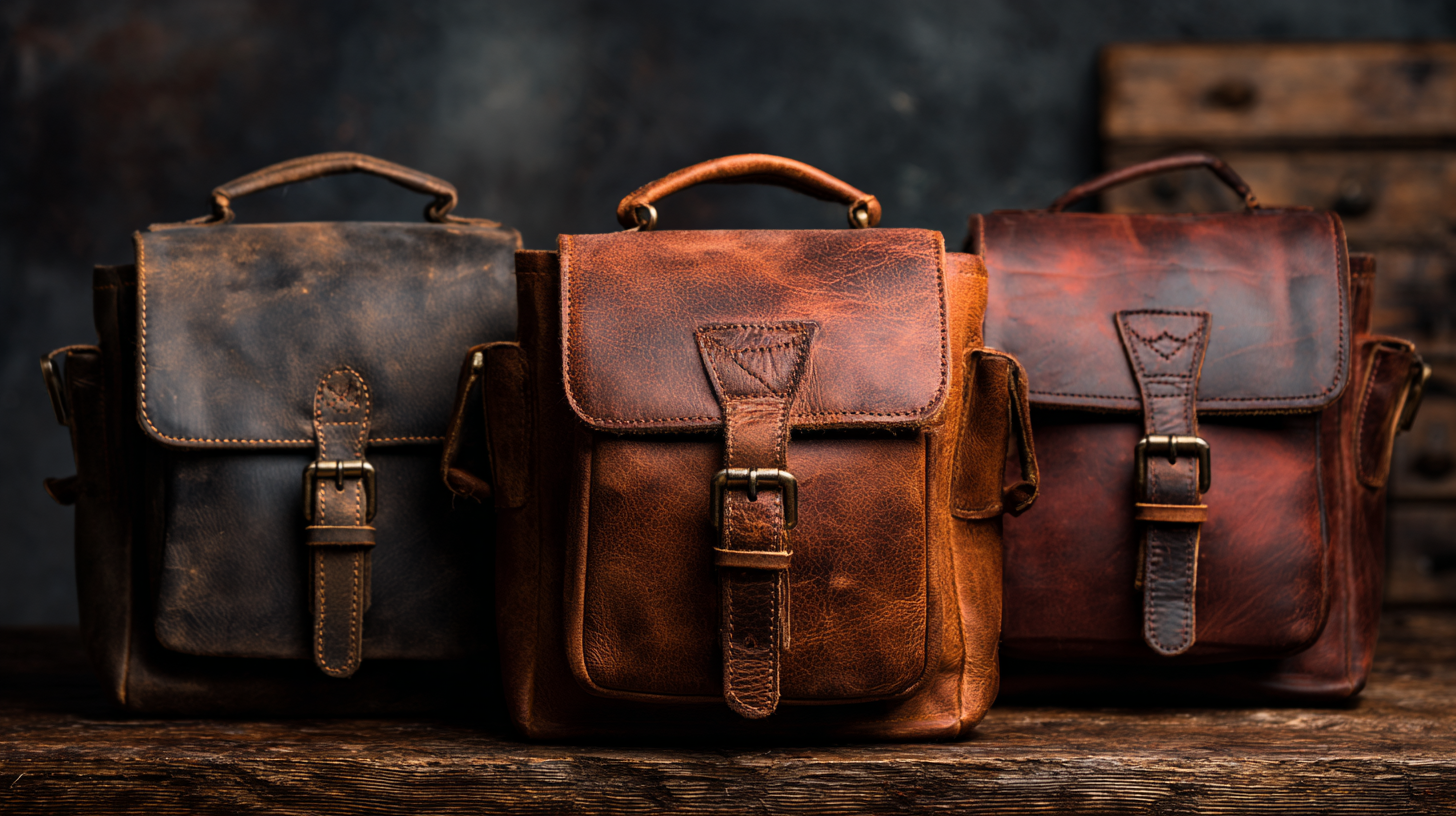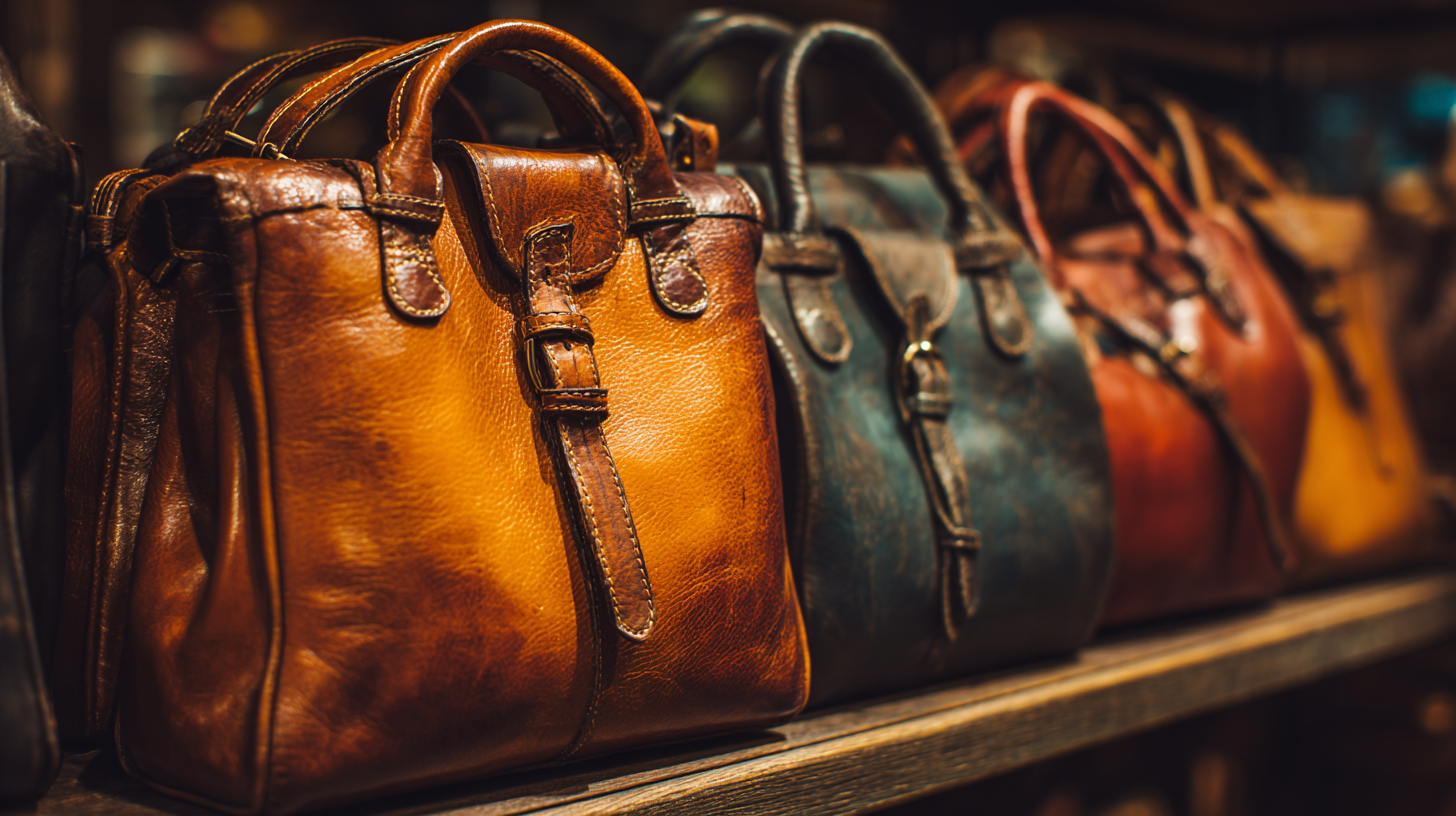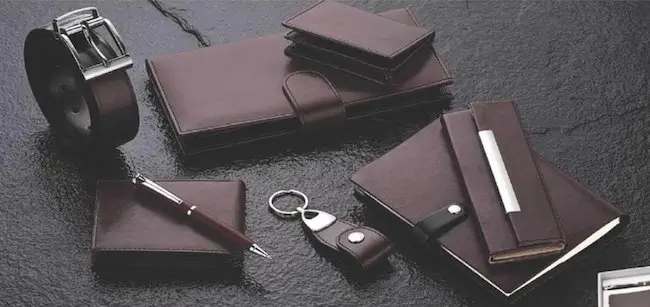Exploring Luxurious Alternatives to Best High Quality Leather Handbags for Discerning Buyers
As the luxury fashion industry continues to evolve, discerning buyers are increasingly seeking alternatives to traditional high quality leather handbags. According to a recent report by Grand View Research, the global luxury handbag market was valued at over $64 billion in 2022, with a substantial portion attributed to high quality leather handbags. However, rising concerns regarding sustainability and ethical sourcing have led to a shift towards innovative materials that mimic the aesthetics and durability of leather without compromising on ethical values.

Brands are now exploring options such as vegan leather and other eco-friendly materials, aiming to cater to the growing demand for stylish yet responsible choices. This blog delves into the luxurious alternatives to high quality leather handbags, offering a glimpse into the future of sustainable fashion for the discerning buyer.
Luxurious Materials: Exploring Vegan and Sustainable Leather Alternatives
As the fashion industry evolves, discerning buyers are increasingly seeking luxurious alternatives to traditional high-quality leather handbags. With an emphasis on sustainability and ethical choices, vegan and sustainable leather options have become incredibly popular. These materials not only offer a guilt-free approach to luxury but also come in a variety of innovative textures and styles, appealing to the sophisticated tastes of the modern consumer.
Vegan leather, crafted from materials such as polyurethane, cork, or even pineapple fibers, provides a chic alternative that remains cruelty-free. These materials mimic the look and feel of genuine leather while offering a plethora of colors and patterns that can elevate any outfit. Brands are now experimenting with high-tech fabrics that boast enhanced durability and weather resistance, ensuring that these bags maintain their elegance over time. Additionally, sustainable leather options, derived from recycled materials or eco-friendly tanning processes, are gaining traction. These products reflect not only a commitment to quality but also a responsibility towards our planet, making them ideal for the environmentally-conscious luxury buyer.
Timeless Craftsmanship: The Art of Handmade Designer Handbags
In the realm of fashion, handbags are more than mere accessories; they embody a blend of artistry and craftsmanship. The allure of handmade designer handbags lies in the meticulous attention to detail and the personal touch that each artisan imbues in their work. From the selection of the highest quality materials to the intricate stitching techniques passed down through generations, each handbag tells a unique story, reflecting the passion and dedication of its creator.
Handmade handbags often prioritize not just aesthetics but also functionality and longevity. Artisans take pride in using sustainable practices and ethically sourced materials, making these bags not only luxurious but also responsible choices for the discerning buyer. The tactile experience of a handcrafted bag, with its unique textures and finishes, adds a layer of exclusivity that mass-produced items simply cannot replicate. With timeless designs that transcend fleeting trends, these handbags become treasured pieces, meant to be cherished for years to come and often shared through generations—demonstrating that true luxury lies in the art of craftsmanship.
Innovative Technologies: Exploring High-Tech Fabrics in Luxury Handbags
The luxury handbag sector is experiencing a remarkable transformation, driven by innovative technologies that are reshaping high-end fashion accessories. As brands explore high-tech fabrics, the focus is increasingly on sustainability and functionality. From smart fabrics that react to environmental changes to e-textiles that incorporate electronic components for enhanced user experience, the future of luxury handbags is not only about aesthetics but also about cutting-edge technology and sustainability.
Sustainability is a key trend shaping the fabric innovations in the handbag industry. Many designers are now embracing vegan leather alternatives and sustainable materials that align with environmentally conscious consumer values. Events showcasing the latest in fabric technology have highlighted the emergence of sensory interactive fibers, allowing for bags that are not only stylish but also functional and responsive. This intersection of luxury and technology presents discerning buyers with a plethora of options, making the next generation of handbags both chic and ethically responsible, catering to a more conscious consumer base.
Exploring Luxurious Alternatives to Best High Quality Leather Handbags for Discerning Buyers - Innovative Technologies: Exploring High-Tech Fabrics in Luxury Handbags
| Material | Features | Sustainability | Price Range |
|---|---|---|---|
| Recycled PET | Water-resistant, lightweight, durable | Highly sustainable, reduces plastic waste | $100 - $300 |
| Vegan Leather | Soft texture, diverse designs, easy maintenance | Made from synthetic materials, varies by type | $80 - $250 |
| Technical Nylon | Waterproof, tear-resistant, lightweight | Can be recycled, depending on processing methods | $75 - $220 |
| Microfiber | Soft, stain-resistant, mimics leather feel | Sustainable options available, varies widely | $60 - $180 |
| 3D-Printed Polymers | Customizable designs, lightweight, innovative | Potential for sustainable sourcing | $150 - $500 |
Price vs. Value: Understanding the Worth of Non-Leather Luxury Bags
When considering luxury handbags, the ongoing debate between price and value has never been more pertinent, especially for discerning buyers exploring alternatives to traditional high-quality leather options. Recent industry reports indicate that the resale market for luxury handbags has solidified its position as a sound investment, with certain brands consistently demonstrating strong resale values. For instance, a study highlighted that classic styles often appreciate significantly over time, making them not just a fashion statement but also a financial asset. This insight positions non-leather luxury bags as a viable choice for consumers who prioritize sustainability and ethical fashion alongside style.

Moreover, a survey revealed that there are now a plethora of affordable designer bags under £300, which do not compromise on quality or aesthetics. These offerings from niche brands represent an attainable luxury that appeals to a broader audience while still delivering fashion-forward designs. As more consumers become aware of these alternatives, labels that focus on materials beyond leather are gaining traction, and their unique designs are starting to capture the attention of style-savvy shoppers. With platforms dedicated to reselling these bags, buyers are more empowered than ever to invest wisely, ensuring they are purchasing pieces that not only look good but also hold their value over time.
Iconic Brands: Top Labels Offering High-Quality Alternatives to Leather Handbags
In recent years, the demand for high-quality alternatives to leather handbags has surged among discerning buyers who are increasingly mindful of sustainability and ethical production. Iconic brands such as Stella McCartney and Gucci have risen to the occasion, offering exquisite options crafted from innovative materials like vegan leather, recycled plastics, and other cruelty-free substitutes. According to a report by Grand View Research, the global vegan leather market is projected to reach $89.6 billion by 2025, reflecting a significant shift in consumer preferences toward sustainable luxury.

Leading the charge is Stella McCartney, renowned for its commitment to eco-friendly fashion. The brand’s handbags, such as the iconic Falabella, showcase the beauty of plant-based materials while maintaining an uncompromising standard of quality. Meanwhile, brands like Matt & Nat and Veja are also making waves with their ethically sourced materials and stylish designs. A study from ResearchAndMarkets indicates that brands emphasizing ethical practices have seen a 30% increase in sales over the past two years, highlighting a clear market trend toward high-quality, sustainable luxury alternatives. In this landscape, discerning buyers are no longer confined to traditional leather; they can now explore a diverse array of chic, sustainable options that align with their values.

